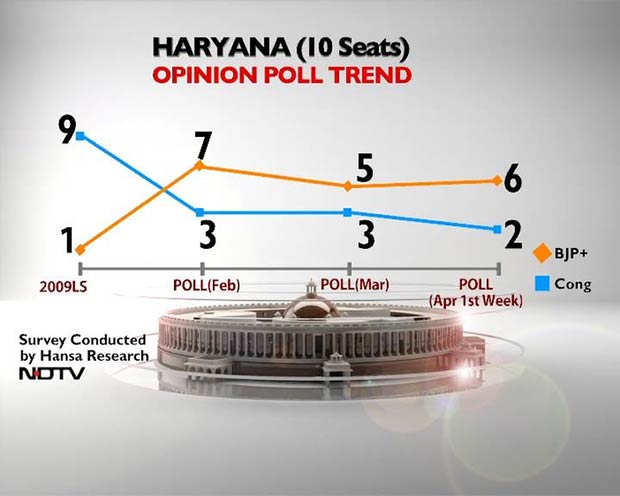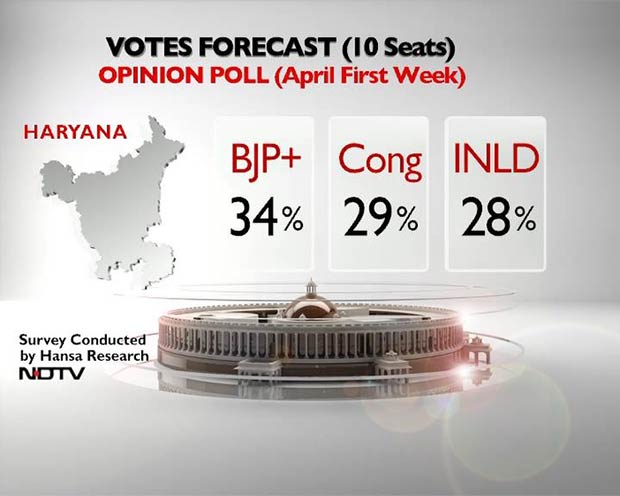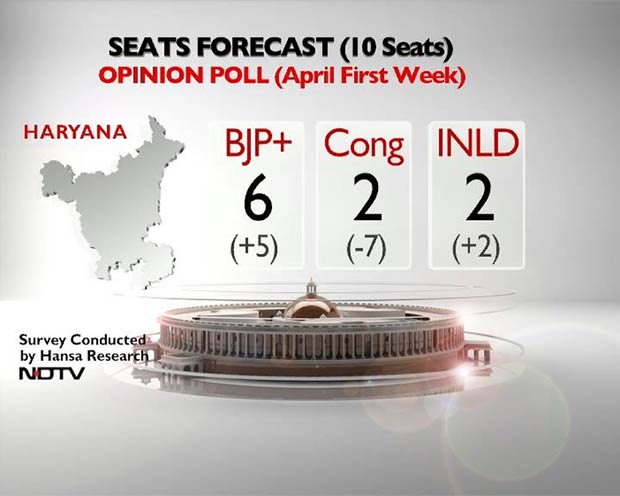11 years ago
Battleground Punjab: NDTV's opinion poll says that the Shiromani Akali Dal combine is likely to win 7 seats, Congress likely to win 6
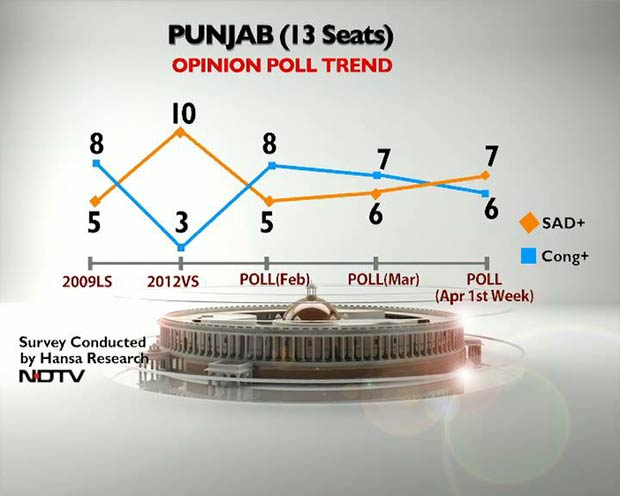
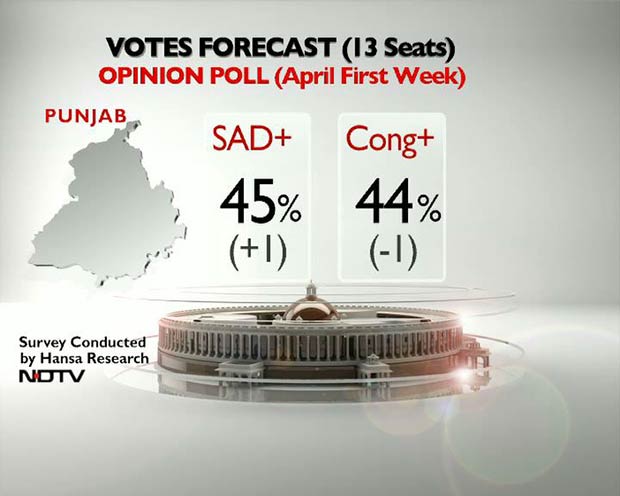
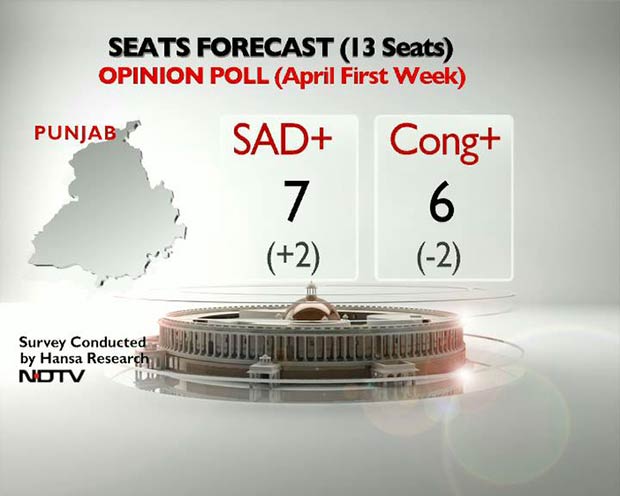



NDTV opinion poll shows BJP, Congress may win 13 seats each in Karnataka, while Deve Gowda's JD(S) may win just 2
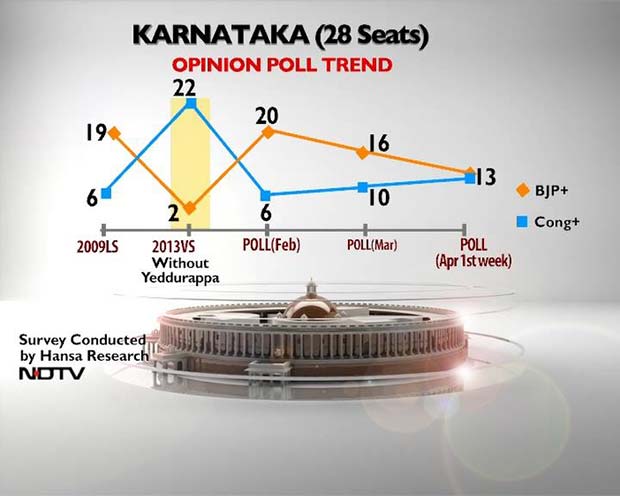
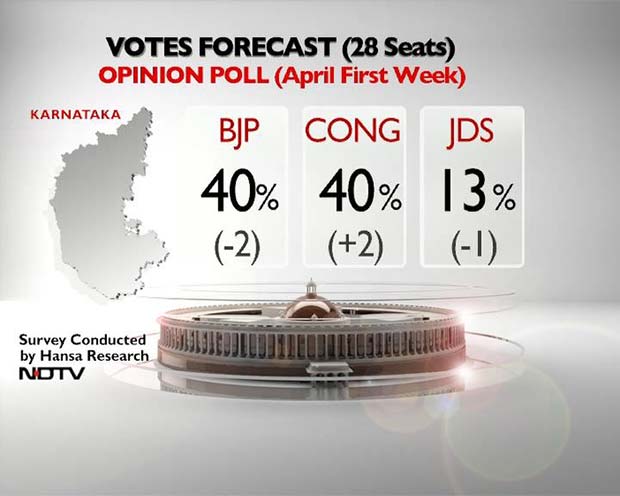
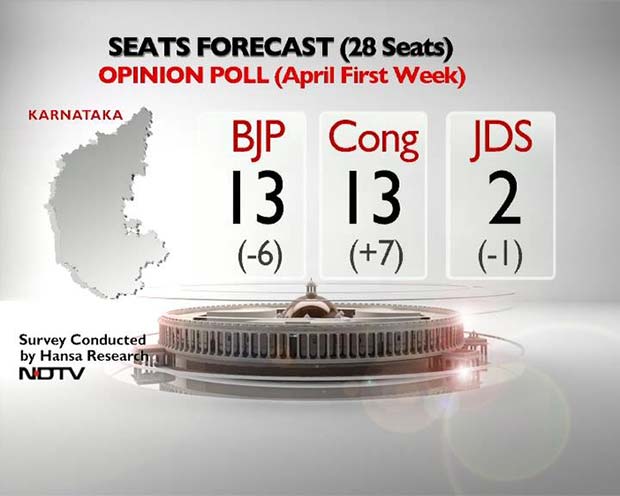
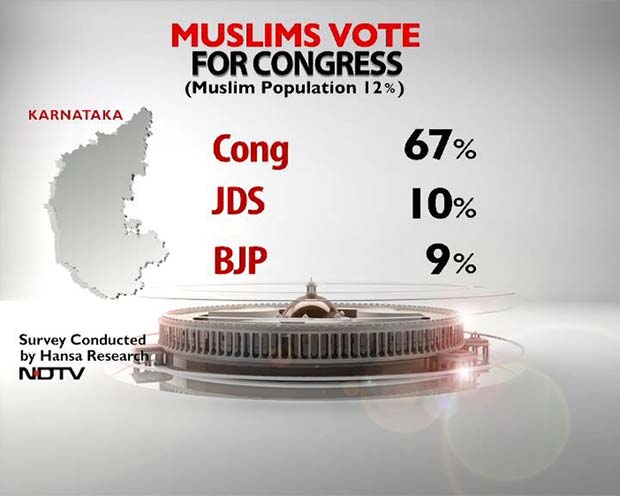
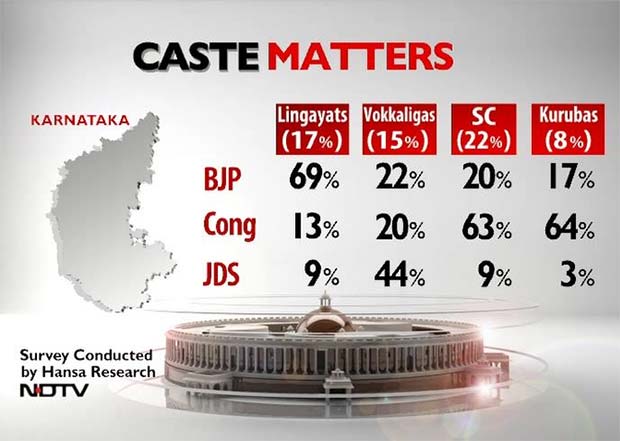





OPINION POLL - METHODOLOGY
NDTV has already broadcast two Opinion Polls involving a total sample of 90300. This has been undertaken in 358 Parliamentary Constituencies.
To understand change in voters' opinion over time two separate studies have now been undertaken:
1. LAST PRE-VOTING OPINION POLL - CONDUCTED ONLY 1-3 DAYS BEFORE VOTING DAY - Telephone Re-contact: A separate telephonic re-contact exercise (telephonic interview with the same respondents who have been earlier tapped in the face opinion polls) is being undertaken 1 - 3 days BEFORE the elections to gauge their shift in opinion over time. This will involve re-contacting about 24000 voters nationally.
2. A separate opinion poll is being conducted simultaneously in a large proportion of constituencies where voting has not yet taken place. This Opinion Poll is being done BEFORE the voting to reassess the change in views among voters. This will involve a sample of about 15000 voters.
Salient Features:
• Respondents for these Opinion Polls are being randomly selected from the Electoral rolls - in case of non-availability of the randomly selected voter / refusal to share opinion, random replacement chosen basis same gender and age-cohort
• A large number of female interviewers being used - to get better responses from women - especially among sensitive ethnic / religious communities and rural regions
• Computer Aided Personal Interviews conducted with GPRS enabled tablets to ensure the strict norms of quality control
NDTV has already broadcast two Opinion Polls involving a total sample of 90300. This has been undertaken in 358 Parliamentary Constituencies.
To understand change in voters' opinion over time two separate studies have now been undertaken:
1. LAST PRE-VOTING OPINION POLL - CONDUCTED ONLY 1-3 DAYS BEFORE VOTING DAY - Telephone Re-contact: A separate telephonic re-contact exercise (telephonic interview with the same respondents who have been earlier tapped in the face opinion polls) is being undertaken 1 - 3 days BEFORE the elections to gauge their shift in opinion over time. This will involve re-contacting about 24000 voters nationally.
2. A separate opinion poll is being conducted simultaneously in a large proportion of constituencies where voting has not yet taken place. This Opinion Poll is being done BEFORE the voting to reassess the change in views among voters. This will involve a sample of about 15000 voters.
Salient Features:
• Respondents for these Opinion Polls are being randomly selected from the Electoral rolls - in case of non-availability of the randomly selected voter / refusal to share opinion, random replacement chosen basis same gender and age-cohort
• A large number of female interviewers being used - to get better responses from women - especially among sensitive ethnic / religious communities and rural regions
• Computer Aided Personal Interviews conducted with GPRS enabled tablets to ensure the strict norms of quality control
- All interviews conducted in the home and not at street corners
- Through better monitoring of data collectors
- Better quality of questionnaire administration by controlling the order in which questions are asked through a pre-programmed script and not leaving it to the discretion of the interviewers
- Making data collection process less intrusive by replacing the ballot box with a much less conspicuous hand-held device
- Respondent invited to show his / her preference for a political party through a simulated ballot paper (tablet screen that looks like the EVM and respondent can cast his / her vote by touching the screen)

